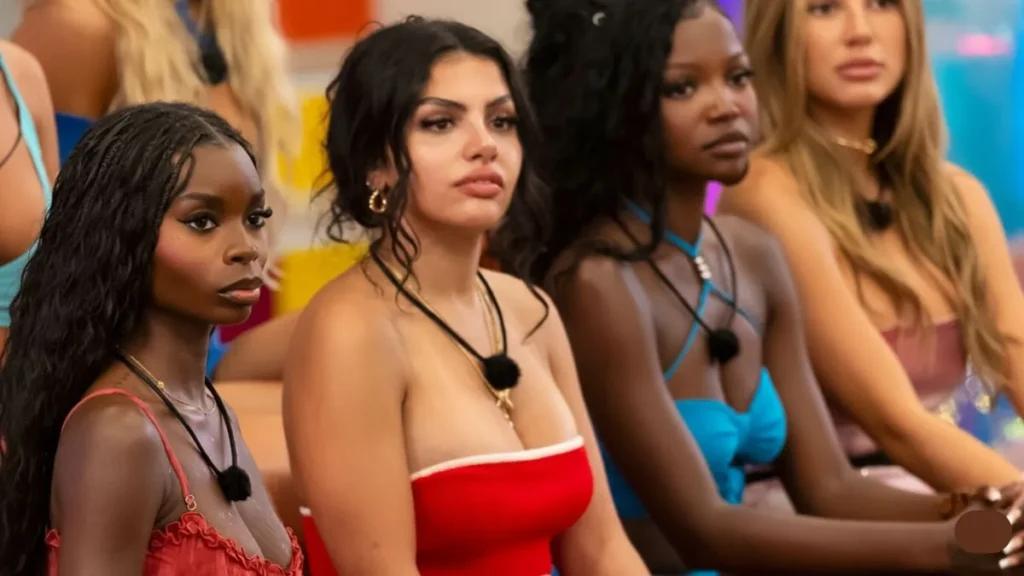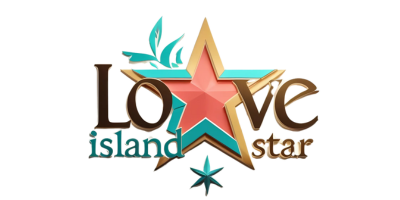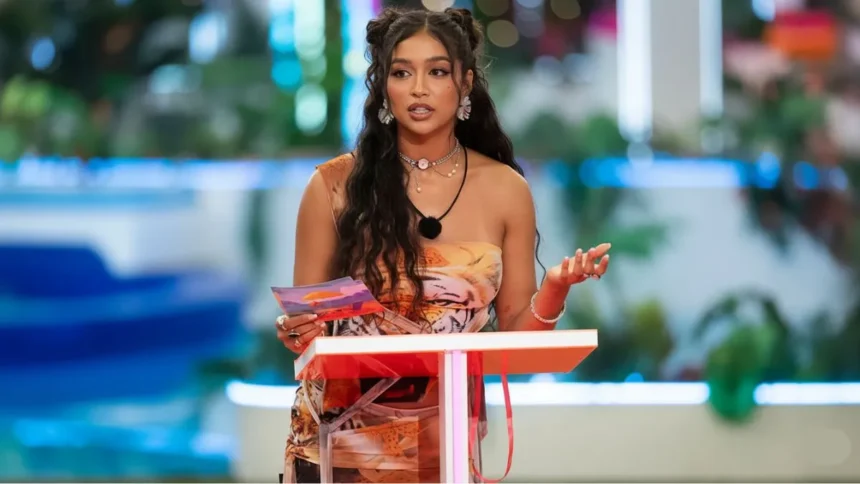Love Island USA Embroiled in Serious Racism Controversy
A disturbing incident involving Love Island USA Season 7 cast members has ignited fierce debate about racism, accountability, and the responsibility of reality TV personalities. Huda Mustafa and her boyfriend Louis Russell found themselves at the center of a firestorm after their reaction to a racist phone call during a livestream sparked widespread condemnation.
The controversy has resulted in significant professional consequences, community statements from fellow contestants, and an important conversation about how racism continues to manifest in entertainment spaces.
The Livestream Incident That Sparked Outrage
What Happened During the Call
The controversy erupted when Mustafa and Russell were broadcasting a livestream to their followers. During the broadcast, they received and answered a phone call that would change the trajectory of Mustafa’s career and public image.
The caller proceeded to use the N-word in reference to fellow Love Island USA contestant Olandria Carthen. The reaction from Mustafa and Russell—laughter before hanging up—immediately triggered public outrage across multiple social media platforms.
The Public’s Immediate Response
The response was swift and unequivocal. Viewers and social media users:
- Demanded Mustafa’s removal from brand partnerships
- Called for a genuine apology to Carthen
- Questioned why anyone would laugh at a racial slur under any circumstances
- Expressed disappointment in both Mustafa and Russell’s behavior
The incident raised fundamental questions about complicity, bystander behavior, and what it means to truly stand against racism.
The Controversial Defense and Backlash
Mustafa and Russell’s Initial Explanation

Both Mustafa and Russell attempted to address the controversy through Instagram statements. Their defense centered on a claim that they did not hear Carthen’s name mentioned and only heard the slur itself, which they suggested was why they laughed.
Why the Explanation Failed
This explanation was met with intense skepticism and criticism. The public response essentially asked: “Why would you laugh at a racial slur regardless of context?”
The justification raised more questions than it answered:
- It suggested that racial slurs might be humorous in certain contexts
- It failed to acknowledge the harm of laughing at racist language
- It demonstrated a troubling lack of understanding about the weight and history of such language
The response highlighted a disconnect between the reality stars and the gravity of racist language and behavior.
Olandria Carthen’s Powerful Response
Addressing the Pain With Dignity
Olandria Carthen demonstrated remarkable grace and strength in her response to the incident. Taking to Instagram, she articulated the deeper implications of what had occurred, explaining that words like the N-word carry profound pain and perpetuate cycles of racism.
Anticipating Performative Apologies
Carthen showed prescient awareness of how such controversies typically unfold in celebrity culture. She anticipated surface-level apologies that would allow the situation to fade from public consciousness within days—a prediction that proved accurate.
Turning Pain Into Action
Rather than simply expressing hurt, Carthen transformed the moment into an opportunity for meaningful action. She shared resources and links to organizations working to uplift the Black community, including:
- NAACP (National Association for the Advancement of Colored People)
- UNCF (United Negro College Fund)
- Thurgood Marshall College Fund
This response demonstrated leadership and a commitment to creating positive change from a harmful situation.
Love Island Contestants Unite Against Racism
Nicolas Vansteenberghe’s Support
Carthen’s partner and fellow Love Island contestant Nicolas Vansteenberghe quickly showed solidarity. He posted on Snapchat sharing the same organizations and foundations, clearly stating that racism is never okay.
Cast Members Speak Out
Other Love Island USA contestants rallied to condemn racism and support Carthen:
- Chelley
- Jalen
- Clarke
- Iris
- Amaya
Each released statements denouncing racism, showing that the Love Island community—at least publicly—would not tolerate such behavior.
This collective response demonstrated that while one cast member’s actions were problematic, many others were willing to take a clear stand against racism.
Professional Consequences: Brand Deals and Fallout
Huda Beauty Ends Partnership
The most significant professional consequence came when Huda Beauty, one of Mustafa’s major brand partnerships, terminated their relationship with the reality star. This decision sent a clear message that brands are increasingly unwilling to associate with individuals involved in racist incidents.
Mustafa’s Second Apology
Following the mounting pressure and loss of partnerships, Mustafa issued another statement apologizing to Carthen. However, as many observers noted, the damage had already been done.
The timing and circumstances of the second apology raised questions about its sincerity—was it genuine remorse or damage control prompted by professional consequences?
The Ongoing Problem: Fan Behavior and Accountability
Racist Attacks on Other Contestants
In a troubling twist, Mustafa’s supporters began targeting other Love Island contestants—including some from Season 6—with racist remarks. These attacks came in response to those contestants’ statements condemning Mustafa’s actions.
This created a disturbing cycle where an incident of racism led to further racist behavior, demonstrating how quickly these situations can escalate.
Mustafa’s Failure to Address Fan Toxicity
Critics have pointed out that Mustafa has not taken steps to stop her fans from making racist comments against other contestants. This silence has been interpreted as tacit approval or, at minimum, a failure to take full responsibility for the environment her actions created.
By allowing her fanbase to attack others with racist language, Mustafa undermines any apologies she has offered and demonstrates an incomplete understanding of accountability.
The Broader Issue: Racism in Reality TV
A Pattern of Problematic Behavior
This incident is far from isolated in reality television. Shows like Love Island have faced repeated criticism for:
- Lack of diversity in casting
- Microaggressions that go unaddressed
- Contestants with problematic social media histories
- Insufficient consequences for racist behavior
The Responsibility of Platforms and Producers
The controversy raises questions about what responsibility production companies and networks have in:
- Vetting contestants more thoroughly
- Creating consequences for racist behavior
- Educating cast members about their platform and responsibilities
- Fostering inclusive environments both on and off camera
Olandria Carthen: A Model of Resilience
Refusing to Be Defined by Others’ Hate
Throughout this ordeal, Olandria Carthen has shown remarkable resilience. Rather than allowing the racist remarks and the subsequent controversy to derail her goals, she has:
- Spoken out with clarity and dignity
- Redirected attention to meaningful causes
- Continued to pursue her aspirations
- Demonstrated what accountability and leadership look like
Setting an Example
Carthen’s response serves as a model for how to handle such situations with grace while also refusing to minimize the harm caused. She acknowledged the pain without being consumed by it, and she transformed a hurtful moment into an opportunity for education and action.
What This Controversy Reveals About Cancel Culture and Accountability
The Difference Between Consequences and Cancellation
This incident illustrates the distinction between “cancel culture” and genuine accountability:
- Mustafa faced professional consequences (lost brand deals)
- The public demanded acknowledgment of harm
- Fellow contestants spoke out against the behavior
- The incident sparked broader conversations about racism
These are not arbitrary attacks but rather natural consequences of actions that perpetuate harm.
The Insufficiency of Apologies Without Action
The controversy also demonstrates that apologies mean little without changed behavior. Mustafa’s failure to address her fans’ racist attacks on other contestants shows that words alone are insufficient—accountability requires concrete action.
Moving Forward: Lessons From the Scandal
For Reality TV Participants
This incident should serve as a cautionary tale for anyone entering the reality TV space:
- Understand that you have a platform and influence
- Recognize that all actions have consequences
- Never laugh at or minimize racist language
- Take responsibility for your fanbase’s behavior
- Educate yourself about racism and your role in either perpetuating or combating it
For Viewers and Fans
The public also has a role to play:
- Continue holding public figures accountable
- Support those who speak out against racism
- Don’t engage in performative allyship—follow words with actions
- Support the organizations and causes highlighted by those affected
For the Industry
Production companies and networks must:
- Implement better vetting processes
- Create clear consequences for racist behavior
- Provide education and resources to contestants
- Foster environments where racism is not tolerated
Moment That Demanded More
The Love Island USA racism scandal involving Huda Mustafa, Louis Russell, and Olandria Carthen represents more than just another reality TV controversy. It’s a reflection of how racism continues to manifest in entertainment spaces and how inadequate responses perpetuate harm.
While Mustafa faced some consequences, her incomplete accountability and failure to address her fans’ behavior suggests she has not fully grasped the severity of the situation. Meanwhile, Olandria Carthen’s dignified response and commitment to turning pain into action sets a powerful example.
The incident serves as a reminder that in 2024 and beyond, there is no room for laughing at racial slurs, making excuses for racist behavior, or allowing such incidents to fade without meaningful change.







